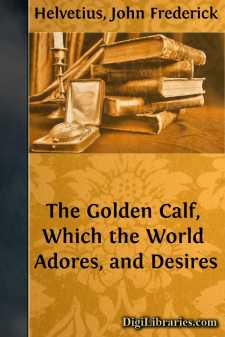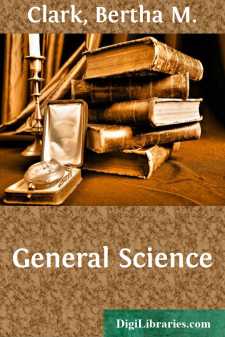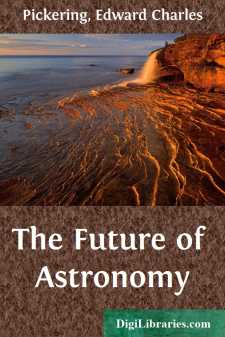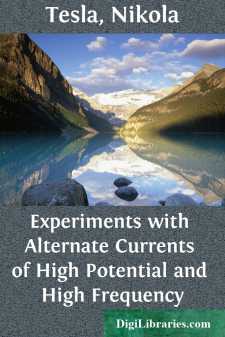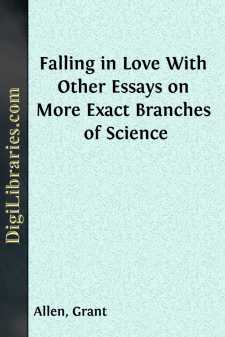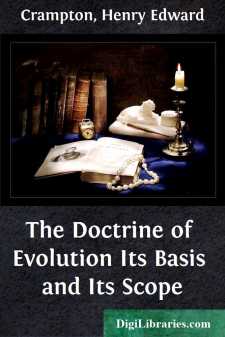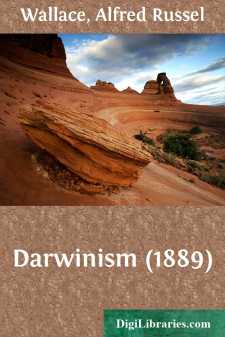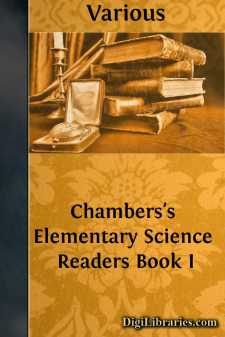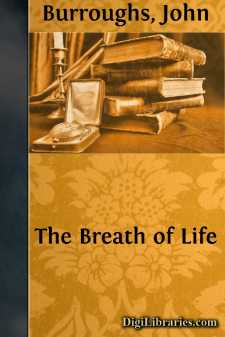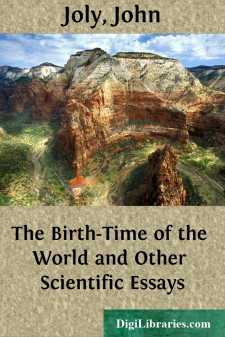Science
- Astronomy 18
- Biology 40
- Chemistry 13
- Electricity 1
- General 38
- History 6
- Light 1
- Paleontology 2
- Philosophy & Social Aspects 1
- Physics 3
- Relativity 2
- Study & Teaching 1
- Waves & Wave Mechanics 1
Science Books
Sort by:
CHAP. I. Most Excellent, and Prudent Sirs. Before I enter upon the Description of the Philosophick PIGMY,(in this little Theatre of Secrets) overcoming and subduing GIANTS, I pray permit me here to use the words of Vanhelmont, taken out of his Book De Arbore Vitæ, fol. 630. and here Transcribed. I compelled to believe, that there is an Aurifick, and Argentick Stone. But (Friend of the Spagyrick Art) I...
more...
by:
Bertha M. Clark
CHAPTER I HEAT I. Value of Fire. Every day, uncontrolled fire wipes out human lives and destroys vast amounts of property; every day, fire, controlled and regulated in stove and furnace, cooks our food and warms our houses. Fire melts ore and allows of the forging of iron, as in the blacksmith's shop, and of the fashioning of innumerable objects serviceable to man. Heated boilers change water into...
more...
THE FUTURE OF ASTRONOMY BY PROFESSOR EDWARD C. PICKERING HARVARD COLLEGE OBSERVATORY It is claimed by astronomers that their science is not only the oldest, but that it is the most highly developed of the sciences. Indeed it should be so, since no other science has ever received such support from royalty, from the state and from the private individual. However this may be, there is no doubt that in...
more...
by:
Nikola Tesla
Biographical Sketch of Nikola Tesla. While a large portion of the European family has been surging westward during the last three or four hundred years, settling the vast continents of America, another, but smaller, portion has been doing frontier work in the Old World, protecting the rear by beating back the "unspeakable Turk" and reclaiming gradually the fair lands that endure the curse of...
more...
by:
Grant Allen
FALLING IN LOVE An ancient and famous human institution is in pressing danger. Sir George Campbell has set his face against the time-honoured practice of Falling in Love. Parents innumerable, it is true, have set their faces against it already from immemorial antiquity; but then they only attacked the particular instance, without venturing to impugn the institution itself on general principles. An old...
more...
I EVOLUTION. THE LIVING ORGANISM AND ITS NATURAL HISTORY The Doctrine of Evolution is a body of principles and facts concerning the present condition and past history of the living and lifeless things that make up the universe. It teaches that natural processes have gone on in the earlier ages of the world as they do to-day, and that natural forces have ordered the production of all things about which...
more...
WHAT ARE "SPECIES," AND WHAT IS MEANT BY THEIR "ORIGIN" Definition of species—Special creation—The early Transmutationists—Scientific opinion before Darwin—The problem before Darwin—The change of opinion effected by Darwin—The Darwinian theory—Proposed mode of treatment of the subject. The title of Mr. Darwin's great work is—On the Origin of Species by means of...
more...
by:
Various
THE CAT. PART 1.walk´-ingthoughtknewsheathswatchedstrokedsmoothwon´-dergroundfore´-pawsyawnmis-take´shak´-ingtoesstretchedclaw1. Pussy came walking along the garden-path. Harry watched her, and saw that she did not like the damp ground. 2. She jumped over the pools, and then began to run, shaking her paws as she got to the house. 3. 'Now, a dog does not mind wet feet,' Harry thought;...
more...
by:
John Burroughs
I I When for the third or fourth time during the spring or summer I take my hoe and go out and cut off the heads of the lusty burdocks that send out their broad leaves along the edge of my garden or lawn, I often ask myself, "What is this thing that is so hard to scotch here in the grass?" I decapitate it time after time and yet it forthwith gets itself another head. We call it burdock, but...
more...
by:
John Joly
PREFACE Tins volume contains twelve essays written at various timesduring recent years. Many of them are studies contributed toScientific Reviews or delivered as popular lectures. Some areexpositions of views the scientific basis of which may beregarded as established. Others—the greater number—may bedescribed as attempting the solution of problems which cannot beapproached by direct observation....
more...


